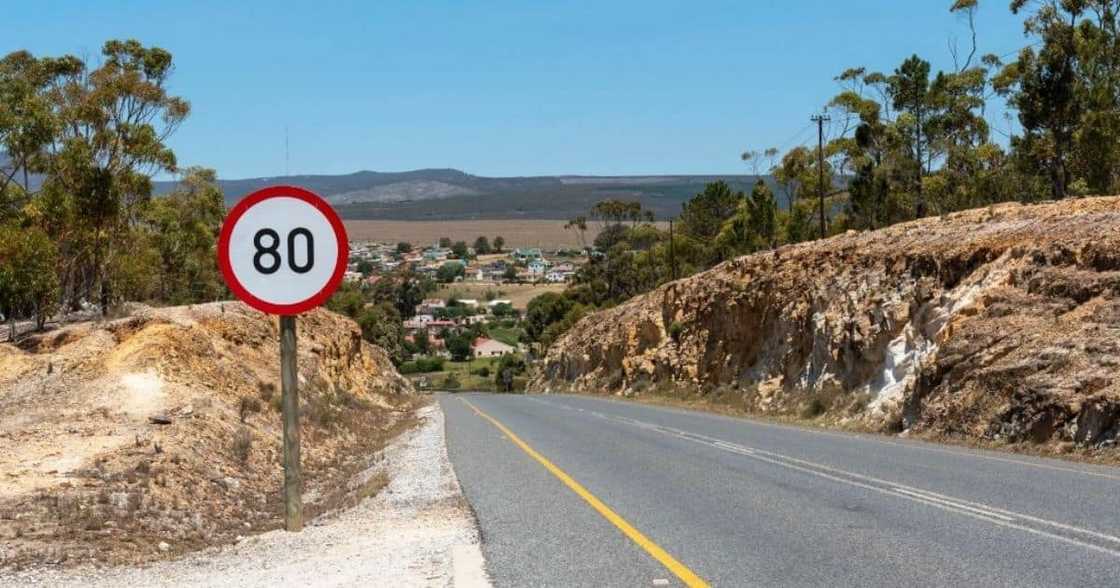New Speed Limits Put Forward by RTMC for SA Roads and Highways, 10km/h Drop Expected
- South Africa's speed limits should decrease by 10km per hour, says the Road Traffic Management Corporation
- South Africa signed the United Nations Decade of Action for Road Safety 2021-2030 plan, which aims to reduce road deaths by 50%
- Speeding is the leading cause of road deaths in South Africa, followed by jaywalking and overtaking on solid lines
PAY ATTENTION: Follow Briefly News on Twitter and never miss the hottest topics! Find us at @brieflyza!
JOHANNESBURG - The Road Traffic Management Corporation (RTMC) has suggested that the speed limits on South Africa's highways and roads should be lowered by 10km per hour.
This aligns with a United Nations (UN) global goal plan that South Africa has signed. The UN's Decade of Action for Road Safety 2021-2030 aims to halve the number of vehicle crashes that take place by 2030.
According to TimesLIVE, Simon Zwane, the chief communication officer for the RTMC, said one method they plan to use to achieve this goal is to lower the speeds motorists are travelling at, as this will reduce car crashes on South Africa's roads.

Read also
What on earth was Kanye West driving in the Mcdonald's Super Bowl ad? Peeps curious about amphibious vehicle

Source: Getty Images
The current state of South Africa's roads
South Africa has the 13th most deaths due to road accidents globally, MyBroadband reports. For every 100 000 people, 28.2 die in road accidents. Singapore is currently the country with the least road deaths, at only 3.53 per 100 000 people.
Enjoy reading our stories? Download the BRIEFLY NEWS app on Google Play now and stay up-to-date with major South African news!
Speed is the cause of 24% of South Africa's road deaths, according to the RTMC's data. In addition, 23% are caused by pedestrians who cross the road at places other than those marked for this purpose, and 5% of road deaths are caused by motorists overtaking other vehicles by crossing a solid white line.
“Our road safety strategy has considered all these factors. Legislation is being reviewed to address and bring in place an edifice of various interventions to respond adequately to the challenge that South Africa is facing," Zwane said.

Read also
Dr Joe Phaahla reveals potential plans to ease lockdown restrictions following end of State of Disaster
Reactions to the proposed speed limit decrease
@wpholdt asked:
"What will this help? People currently don’t adhere to speed limits, that’s the problem!"
@Nimrodshego believes:
"They just want new tenders."
@jetjunky remarked:
"If I had a lot of money I would bet that the vast majority of accidents are not caused by people who obey the speed limits."
@KaBediHaiOne said:
"We have idiots as policy makers."
@Motheo2009 shared:
"Cars are getting safer each day and roads engineering is improving but we want to decrease the speed limit, maybe we should remove cars that are old and road unworthy."
Your favourite music played at a high volume is distracting your driving
Speaking of road accidents, Briefly News reported yesterday that driving requires lots of concentration as we navigate congested roads while witnessing many motorists busy on their mobile phones and sometimes by just not focusing on the road. The number of things to pay attention to can be overwhelming at times, particularly to young drivers.
The goal is engaged driving, where the focus is on the road. However, researchers have found links to drivers not being entirely focused when listening to loud music or a song they consider their favourite genre or artist.
The National Highway Traffic Safety Administration lists driving tired as the most significant risk to drivers and other road users. Still, three studies focusing on whether people are impacted by loud music has shown exciting results.
Source: Briefly News


